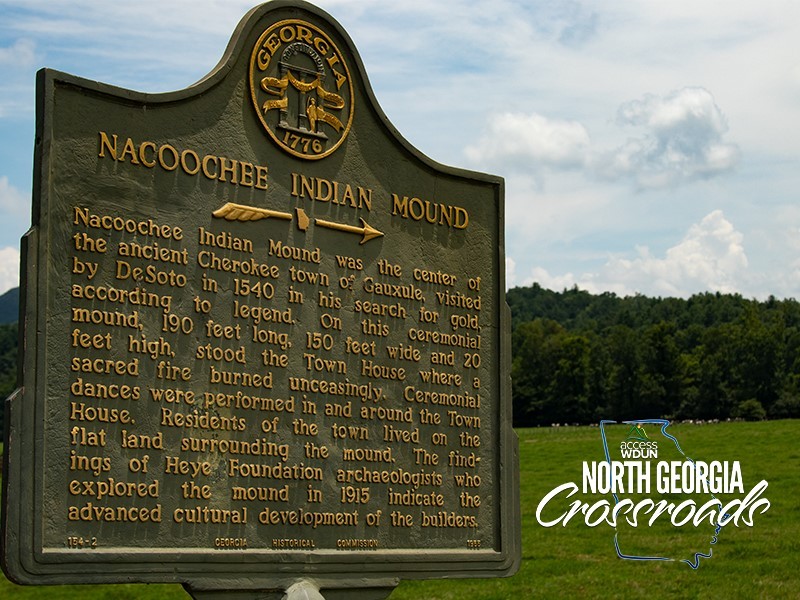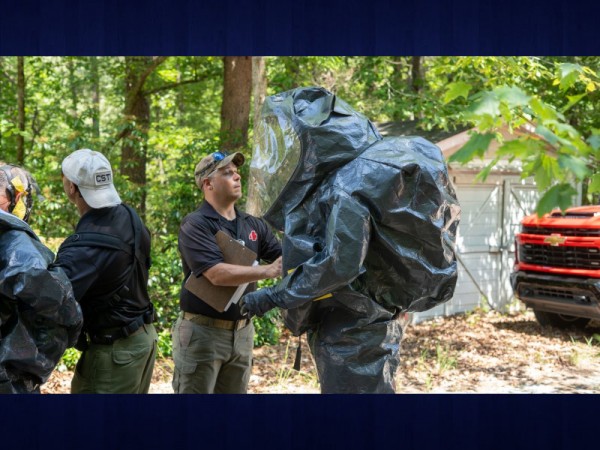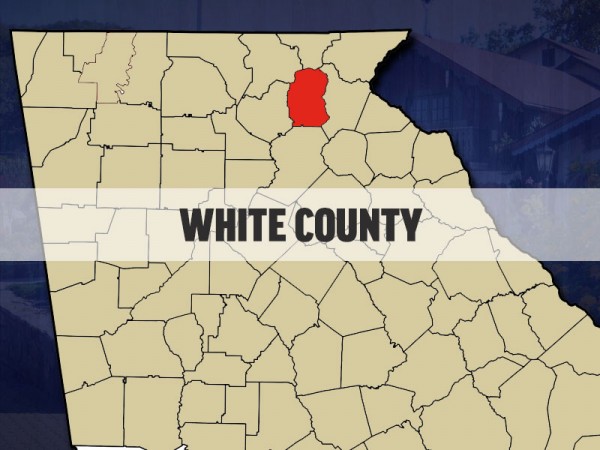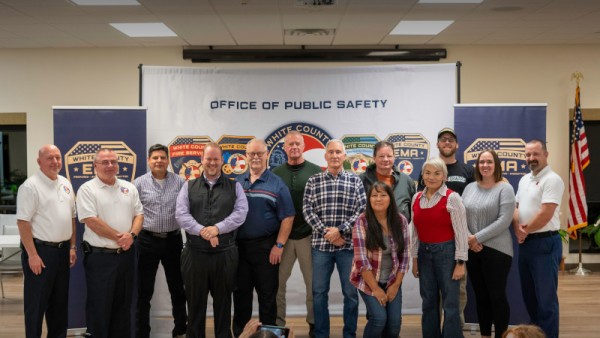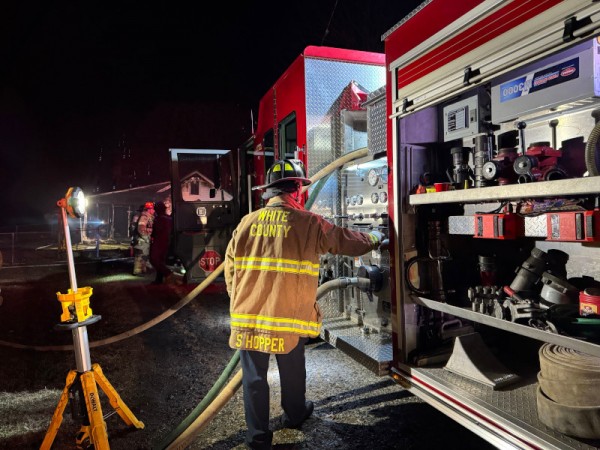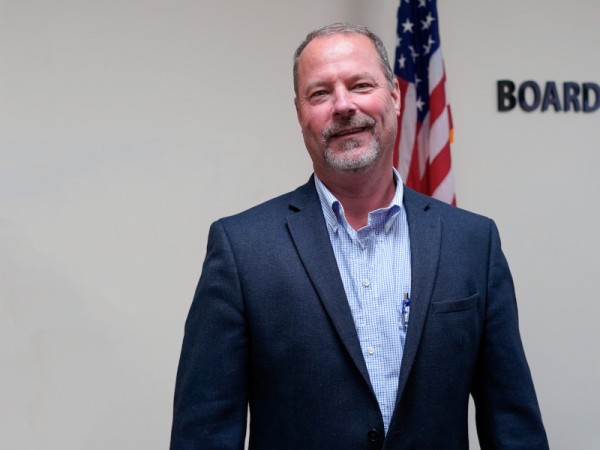What the Sautee Nacoochee community lacks in size, it more than makes up for in its deep, rich history.
It's a history that has filled books, both of legend and fact, so taking a snapshot of the community isn't easy. In fact, the name itself is a bit perplexing. Is it Sautee or is it Nacoochee? If it's both, then is the name of community properly written with or without a hyphen? Local author and historian Emory Jones said it can be confusing for folks.
"There's actually two valleys up here - the Nacoochee Valley runs east and west and the Sautee Valley runs more-or-less north and south and they converge down around the Old Sautee Store [at GA-17 and GA-255], so the community is the Sautee Nacoochee Community," Jones said. "Back in the old days, it was two distinct valleys, but one community of all the people up here."
No matter the semantics, Jones said the valley is steeped in North Georgia history.
"You can't be here without some history rubbing off on you," Jones said.
Sautee and Nacoochee - or Romeo and Juliet?
White settlers didn't arrive in the area until 1822. Prior to that, the valleys were home to Native Americans, and their story is also part of the legend of Sautee Nacoochee. Jones said most everybody in the area knows the tale of Nacoochee and Sautee, the young Indian lovers who met an untimely demise. Nacoochee - whose name means Evening Star - was the daughter of Wahoo, the Chief of the Cherokee tribe that inhabited the region. Sautee was a brave in the enemy Chickasaw tribe.
Jones said, as the legend goes, during a time of peace, Wahoo allowed the Chickasaw to pass through Cherokee land. As the Chickasaw made camp, Nacoochee went to investigate and she saw Sautee. The two fell in love at first sight.
"That night, they snuck off over on Yonah Mountain and hid in a cave up there and made plans to marry and make the two tribes have peace with each other," Jones recounted.
Of course, the plot didn't go as Sautee and Nacoochee had planned, and when Wahoo discovered where his daughter had been, he had Sautee thrown to his death from the cliffs on Yonah Mountain. Nacoochee was a witness to Sautee's death and she jumped off the mountain after him.
"Wahoo, of course, felt so terrible about what he'd done that he had the two brought back to the Indian Mound and had them buried in the mound," Jones said. "He also decreed the two valleys would be named Nacoochee and Sautee forever."
Jones acknowledged there are a few inconsistencies with the legend.
"It sounds an awful lot like Romeo and Juliet to me," Jones said with a laugh. "You know, I'd kinda like for it to be true. It's nice, but it is a legend."
The Hardman Farm, Georgia's Newest State Park
As far as Sautee and Nacoochee being buried at the Indian Mound, Jones said that's just another part of the legend that may - or may not - be true; still, he called the mound "a sacred place." In fact, the mound, located at the corner of GA-75 and GA-17, inspired his book and a documentary by the same name - Distant Voices: The Story of the Nacoochee Valley Indian Mound.
"It's the one thing up here that everybody recognizes," said Jones. "I think it's the second most recognized icon in Georgia next to Stone Mountain."
Even travelers who may not know historic details will certainly recognize the Indian Mound with the gazebo atop; it's a sure sign that folks have found Sautee Nacoochee.
The Italiante style of the gazebo mirrors the other buildings - 19 of them - on the historic farm that sits just across GA-17 to the north. The estate was built in 1870 by Capt. James H. Nichols. It was sold in 1893 to Atlanta businessman Calvin Hunnicutt and then 10 years later, the estate was sold to Dr. Lamartine G. Hardman, who served two terms as Georgia's governor from 1927 to 1931.
The property anchors the west end of the Sautee-Nacoochee Community.
"It's a big piece [of the community]," Jones said. "This is the state's newest historic site...the state took several years and spent a lot of money and restored everything. It's become something the community's very proud of."
Jones said the Hardman Farm State Historic Site is not only a point of pride for people who live in Sautee Nacoochee, but also it's another link to the history of the valley.
Crescent Hill Church: "A beacon of hope for the community"
While the Indian Mound may be one of the most-recognized icons in the state, Sautee Nacoochee is also home to what may be the most-photographed church in Georgia.
Crescent Hill Baptist Church, a classic example of Gingerbread or Carpenter Gothic, was built in 1872 by Capt. Nichols, according to White County Probate Court Judge Garrison Baker, who has written a history of the church, as well as an overall history of White County.
"He was a Presbyterian and there wasn't a Presbyterian church in the area...it started out as the Nacoochee Presbyterian Church," Baker said. The Presbyterians continued to worship in the building until 1902 when the congregation moved to another facility. The church then sat dormant for a decade.
"When Gov. Hardman purchased the property, he was a devout Baptist, so he allowed a group of Baptists to come in and start holding church services here and so Crescent Hill Church was organized in 1921 and it's been a functioning Baptist church since that time," Baker said.
In fact, Baker's great-grandmother was a founding member of the church and six generations of his family have worshipped at Crescent Hill. He said the congregation feels God has entrusted them to maintain the history of the church building, while also ministering to the community.
"It is a blessing that God has left with us," Baker said. "The sanctuary that you see, the outside, is all original with the exception of the concrete steps and the concrete handicapped ramp. Other than that, it's pretty much as it was when it was first created."
Baker said they never lock the door to the church sanctuary because the members want people to stop by and enjoy the church building whenever they happen to be in the valley. As far as safety is concerned, Baker said the church has only experienced a couple of problems. Once, the pulpit Bible was stolen.
"The pulpit Bible was given to us when the church was organized as a Baptist church and it's been on display here since 1928," Baker said.
One day in 1972, the Bible disappeared. The congregation gave up hope of finding it, but miraculously, it turned up 17 years later during the demolition of a home in Hall County.
"They were doing some new construction and they went in to see if there was anything left in the home and they looked up in a closet and there sat that Bible," Baker said. "It made its way back to us...and it's back on display."
As for locking the door after the return of the Bible? That hasn't happened.
"We trust the Lord to take care of His property," said Baker.
Even though the congregation is small today, Baker said Crescent Hill is still a vibrant church; the pews tend to get more crowded during the fall when tourists make their way to the North Georgia mountains. There were days back in the 1930s and 40s, though, when the small building couldn't hold all the worshippers, especially when Ferdinand McConnell and George W. Truett would preach. The two men were the founders of what is now Truett-McConnell University in Cleveland.
"Both of those preachers were good friends with Gov. Hardman," Baker said. "They say when they would preach here that the church would be so full that they'd have to raise the windows and people would stand outside, leaning in the windows, to hear those two great preachers preach."
Baker said when the need for baptism arises, the congregation heads to the nearby Chattahoochee River for the ceremony. They also continue the Baptist tradition of all-day singings and dinner on the grounds.
"It's like stepping back in the past when you worship here," Baker said.
The people love their history
Both Emory Jones and Garrison Baker agree that the people of Sautee Nacoochee love their history - and they know their history. However, they don't consider newcomers to the area as outsiders. The residents want those visitors to know and love the valley, too.
Jones said some people come specifically to Sautee Nacoochee to absorb the history of the community, but others stumble upon it on their way to visit Helen, the bustling Alpine Village just to the north. Either way, Jones said the people who live there are happy to have the company.
"The county has just kind of grown with Helen, also Babyland General has brought in lots and lots of tourists, so we've just kind of gotten used to it," Jones said. "Up here, we're more welcoming because we've had this experience and we've just kind of grown into it. ...I think people welcome tourists and new move-ins, too. It's a unique community."
FAST FACTS ABOUT SAUTEE-NACOOCHEE
SETTLED: White settlers arrived in 1822, but Native Americans lived in the valley prior to that date
POPULATION: Depends on who you ask - one source says 150, another says 263, still another says 1,500. It's not crowded.
LOCATION: On GA-17 just off GA-75 north of Cleveland in White County (look for the Indian Mound)
BOOKS BY GARRISON BAKER:
- A History of Crescent Hill Church
- In the Shadow of Yonah: A History of White County
BOOKS BY EMORY JONES:
- Memories Etched in Pott'ry (The play 'Cheever' is based on this book)
- The Valley Where They Danced (also a play)
- Distant Voices:The Story of the Nacoochee Valley Indian Mound
- Zipping Through Georgia on a Goat Powered Time Machine
- White County 101
PLACES TO SEE:


